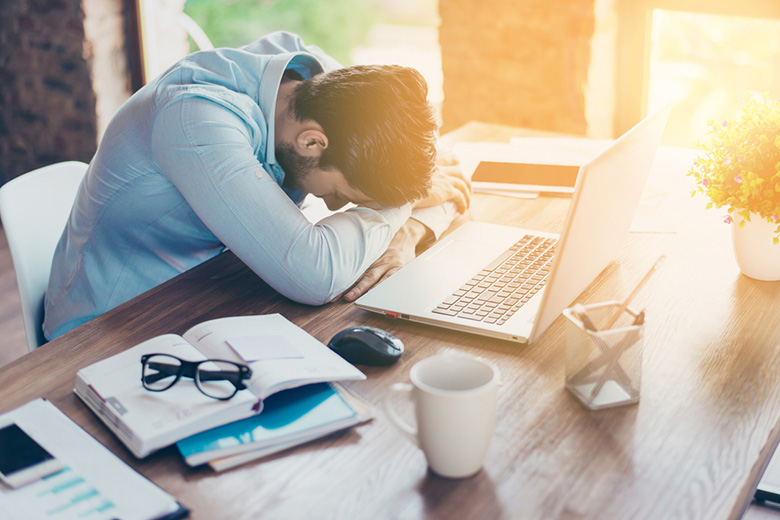Stress affects many factors in our lives, including the quality and duration of sleep. 7 to 9 hours of sleep per night is recommended by most experts. And by now, we all realise that lack of sleep and stress can have a serious impact on physical and mental health.
Research has shown that sleep facilitates a wide range of body processes, these include physical changes such as muscle recovery and mental tasks such as concentration.
Effects of sleep deprivation
A negative mood, low energy, difficulty concentrating and a general inability to function can be a result of not getting enough sleep. A persistent lack of sleep can increase the risk of several chronic health risks. According to a report by the CDC (Center for Disease Control and Prevention), people who get less than 7 hours of sleep per night have an increased risk of conditions such as obesity, heart disease, diabetes, stroke, depression, arthritis and kidney disease. Although a range of factors can cause these conditions, sleep deprivation may contribute to their development.
Link between stress and sleep
Stress is an evolved response that allows us to deal with dangerous or important situations. This response is also known as the fight-or-flight response and was vital to human survival the early stages of evolution. Problems we face on a daily basis can trigger this same response.
Chronic feelings of stress can lead to lack of sleep and insufficient sleep causes stress. So it’s a vicious cycle.

Less stress, more sleep
You can improve the quality of your sleep by relaxing before going to bed. This can be done, for example, by Mindfulness meditation or exercise. Mindfulness meditation is a relaxation technique that aims to make people more aware of the present moment. The goal is to acknowledge all the thoughts, feelings and sensations that occur inside and outside the body without reacting to them. Practicing mindfulness for 10-30 minutes before bed could be an effective method for reducing stress and improving sleep.
Exercise provides physical benefits as well as a means of improving mental health and well-being. It is effective in reducing the symptoms of anxiety and stress. Engaging in moderate or high-intensity physical activity, such as a 30-minute hand-walk, can help reduce stress levels and improve sleep quality.
It is essential to identify the source of stress, which in many cases is related to work or relationships. The following lifestyle changes can also help some people reduce their stress levels
- A healthier diet
- Using less caffeine and alcohol
- Avoiding taking work home or checking work emails in the evening
- Seeking support from family and friends
It is crucial that people who are having problems with stress or sleep deprivation do not try to deal with these problems on their own.
Mental health professionals can provide care and guidance. Friends and family members can offer additional support.
Source: Medical News Today Interested in Mental Wellbeing? Read more articles here.
